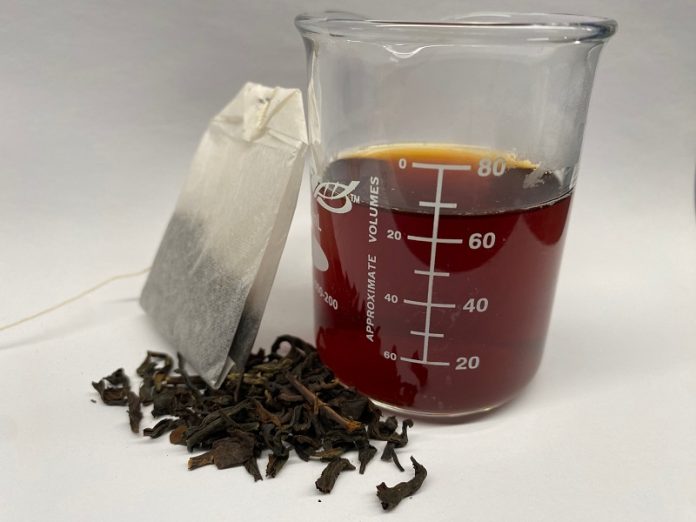
Good news for tea lovers!
Your daily cup of tea may not only be a comforting drink but also a natural way to purify your water.
A new study from Northwestern University has found that brewing tea can help remove toxic heavy metals, such as lead and cadmium, from drinking water.
Heavy metals can be harmful to human health, but tea leaves have a unique ability to trap these contaminants. When tea is steeped in water, the heavy metal particles stick to the surface of the tea leaves. Once the tea bag is removed, those metals stay trapped in the leaves and do not end up in your cup.
“We’re not saying that tea should replace water filters,” said Professor Vinayak Dravid, the senior author of the study. “But our findings show that tea drinking may help passively reduce heavy metal exposure.”
To better understand this effect, researchers tested various types of tea, including black, green, oolong, white, chamomile, and rooibos. They also studied the impact of different tea bags—cotton, nylon, and cellulose (paper-based bags)—as well as loose-leaf tea.
The researchers prepared water solutions containing lead and other metals like copper, zinc, and cadmium. They then steeped the tea leaves for different lengths of time, from a few seconds to 24 hours, and measured how much metal remained in the water.
The results showed several key trends:
- Tea bags made of cellulose work best. While cotton and nylon tea bags removed very little metal, cellulose tea bags were much more effective. Cellulose, made from wood pulp, has a larger surface area, allowing it to capture more metal particles.
- Black tea absorbs slightly more metals. Because black tea leaves are more wrinkled and porous, they have more surface area for metals to cling to, making them slightly better at removing contaminants compared to other teas.
- Longer steeping removes more metals. The biggest factor in reducing heavy metals was the steeping time. The longer the tea was brewed, the more metals were removed. Steeping tea overnight, like when making iced tea, can significantly reduce metal content.
Researchers estimate that a typical cup of tea (one tea bag in one mug of water brewed for 3-5 minutes) can remove about 15% of lead from water. Brewing for longer increases this effect. However, they caution that tea cannot replace proper water filtration, especially in areas with dangerously high metal contamination.
While tea alone may not solve major water safety issues, this discovery could help explain some of tea’s health benefits. Since heavy metal exposure has been linked to heart disease and other illnesses, reducing even a small amount of these toxins in drinking water may have long-term positive effects.
“If people drink an extra cup of tea daily, we might see lower rates of diseases associated with heavy metal exposure,” said Benjamin Shindel, the study’s first author.
So, next time you sip your tea, you might also be giving your body a little extra protection!



